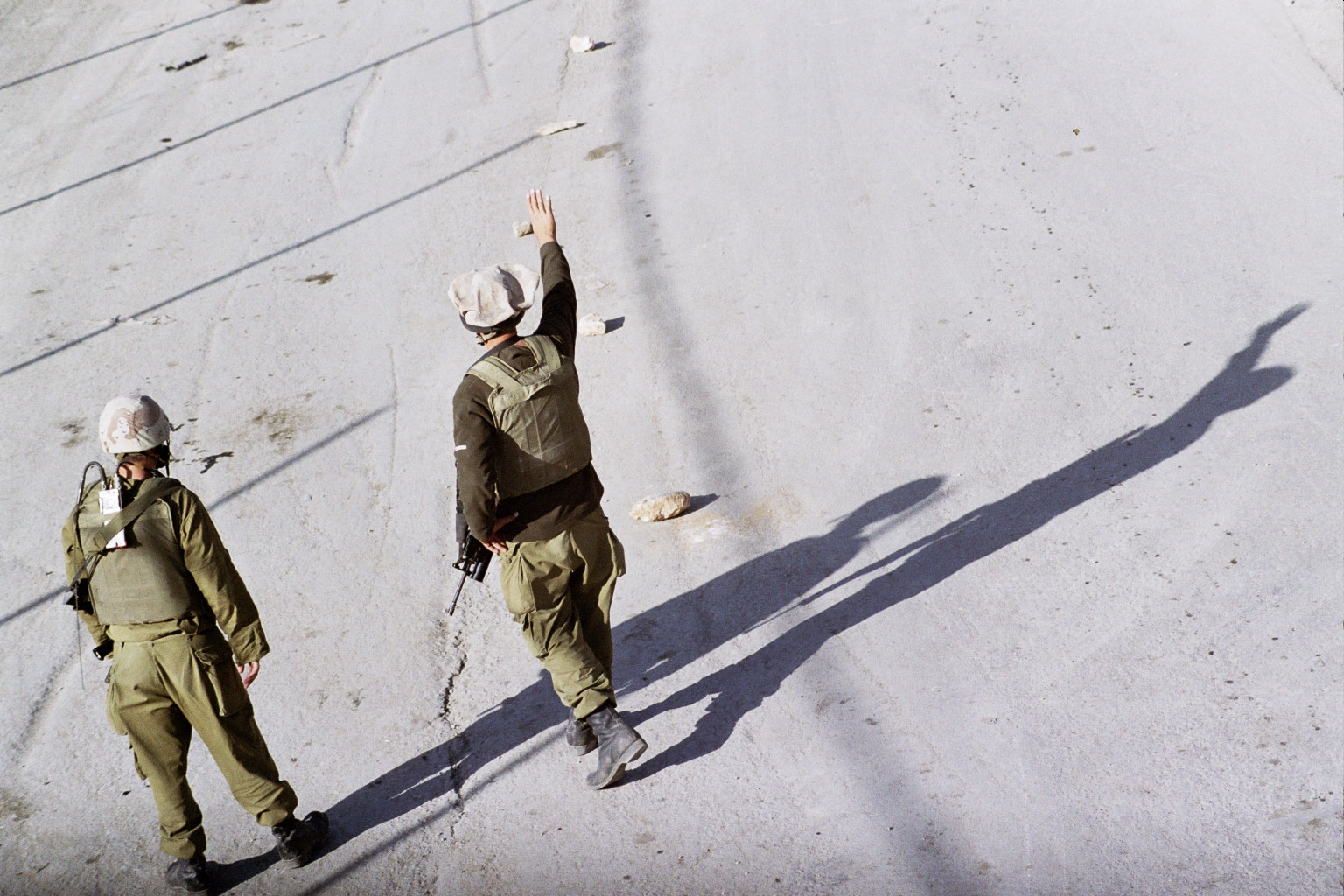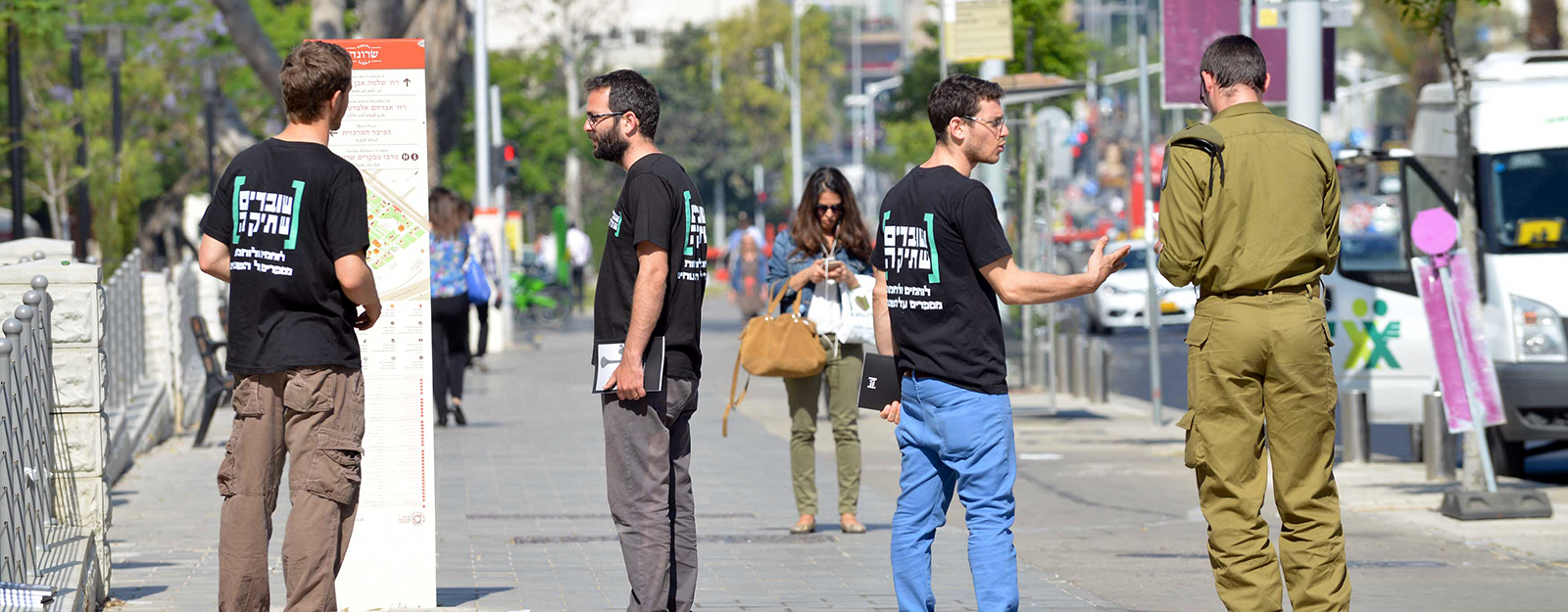In terms of the vibe among the guys, did people like being in riots, or did they not like it?Of course, it’s the best.
Why?You can be deployed in what’s considered a “hot area,” one that has a lot of hostile activity. [You’ll] be on patrol or [initiated] operations every day and you’ll never see the interaction [with the Palestinians] up close. A riot is the only time, I think, that you can see it in such an overt way, where you can shoot riot control means, fight other people, arrest them. It’s the closest to face to face, open violence there is.
Why do you think soldiers are drawn to this violence?First of all, it’s action. You can be deployed for a long time without doing anything, like, be in the same places and do the same things. And if there’s something that breaks the routine, which also [itself] becomes routine after a while, but the moment something breaks the routine, everyone comes over suddenly and it’s something that lots of people from the battalion come [to], [people] you don’t see every day. And the battalion commander comes, and it becomes something really...
It’s an occasion.Yes, an event.
Was there ever a time when you were there (in the village of Nabi Salih) and there was no riot?Yes, there was a Friday where we prepared and there was no riot.
How did it feel?It was a letdown.
Why?Again, because it was the week’s point of interest there, in that area that’s how they prepare you, “on Friday there’s a riot.” [If] you’re staying the weekend, [then at least] there’s a riot. Never mind, it’ll be fun.
That’s what makes up for staying the weekend?That’s the reward you’re given: “Come with me to the riot today.”









 testimonies
testimonies  media & content
media & content 










 you’re staying the weekend, there’s a riot. Never mind, it’ll be fun
you’re staying the weekend, there’s a riot. Never mind, it’ll be fun 

 terms of use & privacy policy
terms of use & privacy policy